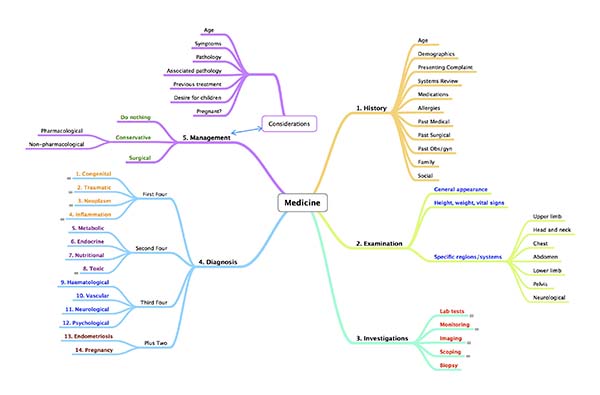
Source: thetalentcode.com
Thinking back to those days in high school, I vaguely remember any special methods I used to study. My notes are based on what my teachers wrote on blackboards. There is no need to make my own version of notes as most of them are already given by the teachers or written in the reference books. The way I used to study was according to my teachers’ instructions. After class, they usually gave some homework to comprehend the subjects of the day. If homework was not given, there would not be any revision. When the exams were just around the corner, only then I started to do some extra workbooks. However, in medical school, things are different. The lecturers are no longer care to lead you to study. They came to the lecture hall, give interesting and deep lectures and that is it. Rarely there is opportunity to ask questions or discussions in the lectures (probably differs from lecturer to lecturer, but that is the gist of it).
Therefore, like it or not, you have to figure out most of the things on your own. There are a lot of ways to study on your own. These 6 techniques that I am going to share are the ones that I found helpful in my journey as a medical student.
Tip 1 – Read lecture notes before AND after lecture
I know this is cliché, but I can vouch it helps. By reading (or at least run through) lecture notes prior to the lecture, you will be prepared mentally and get rough ideas of the lecture itself – what is it about, how deep the topic is, how complicated the lecture will be, etc. It will be easier for you to add on any extra notes from the lecture since you know what is already in there and what is not. In case you accidentally dozed off, you know how to get back on track. Reading after the lecture helps reinforce our memory. One of my lecturers advised to reread the notes within three days after the lecture so that it will be kept in the brain for a long time.
Tip 2 – Make a mind map

Again, cliché advise. However, it helps to reorganise your thoughts to become more systematic. Medical students must memorise a lot of facts, but hardly remember them systematically. By creating a mind map, you will learn to collect the facts and make headings so that it will be easier to be remembered. So, when the exam is near, it is much easier to revise stuffs in simplified form rather than reading your lengthy notes.
Tip 3 – Relate pictures with facts
Some students memorise better with pictures. Pictures give you hints so that you can relate them with stories or facts. For example, I always have a difficulty in remembering the grading of hypertensive retinopathy. One day, my tutor drew me a picture of a cross and make up a story of Jesus crucifixion and relate the drawing with hypertensive retinopathy. The drawing is very simple, yet informative and effective in order to memorise the facts. You can try make up your own drawing or simply find any picture or diagrams on the internet related to the topics that you are looking for.
Tip 4 – Learn from case study
My lecturer used to say that over the years of practice, diagnosing a disease is becoming like a pattern recognition. Most diseases have their own characters and with experience, one learns to remember and identify the pattern to make diagnosis. To recognise it, of course you need to see a lot of the similar cases. Rather than seeing lot of patients, the quick way is to read case study. By learning from a case, you get the whole picture of the disease and how to treat it. Some case studies are mixed with more than 2 illnesses. Thus, you can learn how to manage a complicated case, which is more realistic and useful in clinical setting. However, remember to learn the basic first! The fundamentals must be strong before you move to another level.
Tip 5 – Mnemonics
Mnemonic is a system that uses a pattern of words or phrases that are associated with multiple ideas. It is a great tool to help you remember multiple keywords in short and easy forms. For example, a well-known mnemonic for causes of pancreatitis is “GET SMASHED”, which stands for Gallstone, Ethanol (alcohol), Trauma, Steroids, Mumps, Autoimmune, Scorpion stings, Hypercalcaemia / Hypertriglyceridaemia / Hypothermia, ERCP, Drugs. The trick to remember mnemonic for long term is to not to memorise a lot of them at one time. Memorise them one at a time till they are fixed in your mind. I once had a mnemonic breakdown where I could not remember which mnemonic is for which disease because I cramped the entire mnemonic for DSM-IV (Diagnostic and Statistics Manual for Mental Disorder 4th Edition) criteria near psychiatric examination.
Tip 6 – Write a case from diagnosis
A good exercise to test your knowledge is to write again a case that you have seen in the ward or make up one on your own. Pretend that you are going to present a full long case to a consultant and write down your script from the beginning until the management of that case. After that, practice presenting it in front of the mirror until the flow of presentation becomes smooth without looking at the script. This will help you with your presentation skills and give a rough guideline to present spontaneously without preparing much. Try to do this for every common illness in each body systems.
Dr. Faiz Rashdi recently graduated as a medical doctor from University of Melbourne. He is currently working in a hospital in Negeri Sembilan as a house officer.
